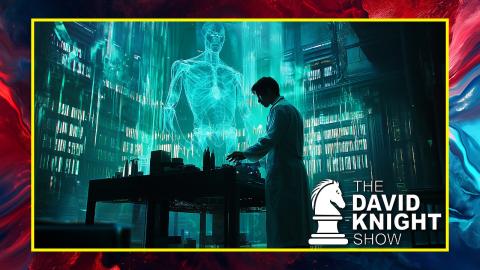Deep Thoughts From Insta-Thots #shorts
7
0
70 Görünümler

Enjoyed this video? Join my GiveSendBro community for exclusive content at
billyvonbomb!
yayınlandı 01 Nov 2021 / İçinde
Komedi
Pure parody and satire. All just for fun.
Help sponsor videos by contributing here
https://www.paypal.me/billyvonbomb
Visit me at www.billyvonbomb.com
Copyright Disclaimer under section 107 of the Copyright Act 1976, allowance is made for “fair use” for purposes such as criticism, comment, news reporting, teaching, scholarship, education and research.
Daha fazla göster
0



 The Alex Jones Show
The Alex Jones Show

 Gonzo Og
Gonzo Og



 Redacted News
Redacted News
 say Never_Again
say Never_Again

 TheSaltyCracker
TheSaltyCracker
 The David Knight Show
The David Knight Show
 Tim Pool
Tim Pool


 AgentofSocialMediaChaos
AgentofSocialMediaChaos

 Timcast IRL
Timcast IRL

 StevenCrowder
StevenCrowder


Log in to comment
WTF? My computer just threw up!
Take the dick OUT of your mouth before speaking.
Say what, Sista?!?!?!
Huh?
"Ummmmmm what? Did she.... say? Orrrrr mean?"
Ohhh I get it.
She is reiterating "James Clerk Maxwell's" equations. She has obvious been to school, studied hard and is a relative gold mine of gifted insights - a relatively stellar level light house of intelligence.
~~~~~~~~~~~~~~
Maxwell's equations are a set of coupled partial differential equations that, together with the Lorentz force law, form the foundation of classical electromagnetism, classical optics, and electric circuits. The equations provide a mathematical model for electric, optical, and radio technologies, such as power generation, electric motors, wireless communication, lenses, radar etc. They describe how electric and magnetic fields are generated by charges, currents, and changes of the fields.[note 1] The equations are named after the physicist and mathematician James Clerk Maxwell, who, in 1861 and 1862, published an early form of the equations that included the Lorentz force law. Maxwell first used the equations to propose that light is an electromagnetic phenomenon.
An important consequence of Maxwell's equations is that they demonstrate how fluctuating electric and magnetic fields propagate at a constant speed (c) in a vacuum. Known as electromagnetic radiation, these waves may occur at various wavelengths to produce a spectrum of radiation from radio waves to gamma rays.
The equations have two major variants. The microscopic equations have universal applicability but are unwieldy for common calculations. They relate the electric and magnetic fields to total charge and total current, including the complicated charges and currents in materials at the atomic scale. The macroscopic equations define two new auxiliary fields that describe the large-scale behaviour of matter without having to consider atomic scale charges and quantum phenomena like spins. However, their use requires experimentally determined parameters for a phenomenological description of the electromagnetic response of materials.
The term "Maxwell's equations" is often also used for equivalent alternative formulations. Versions of Maxwell's equations based on the electric and magnetic scalar potentials are preferred for explicitly solving the equations as a boundary value problem, analytical mechanics, or for use in quantum mechanics. The covariant formulation (on spacetime rather than space and time separately) makes the compatibility of Maxwell's equations with special relativity manifest. Maxwell's equations in curved spacetime, commonly used in high energy and gravitational physics, are compatible with general relativity.[note 2] In fact, Albert Einstein developed special and general relativity to accommodate the invariant speed of light, a consequence of Maxwell's equations, with the principle that only relative movement has physical consequences.
The publication of the equations marked the unification of a theory for previously separately described phenomena: magnetism, electricity, light and associated radiation. Since the mid-20th century, it has been understood that Maxwell's equations do not give an exact description of electromagnetic phenomena, but are instead a classical limit of the more precise theory of quantum electrodynamics.
(p.s. I am not really this smart, I am only smart enough to figure out that Maxwell and so many others were REALLY smart and if I want to properly understand their work, I will need to study VERY hard and for a long period of time, and because I have had a few too many hard crashes, I have considerable difficulty doing maths. But I can appreciate how remarkable their work is...
e.g.
https://en.wikipedia.org/wiki/....Maxwell%27s_equation
https://en.wikipedia.org/wiki/James_Clerk_Maxwell
Marischal College, Aberdeen, 1856–1860 (People had been trying to figure out what the composition of Saturn's rings are since around 1650 - and he did it by maths)
The 25-year-old Maxwell was a good 15 years younger than any other professor at Marischal. He engaged himself with his new responsibilities as head of a department, devising the syllabus and preparing lectures.[56] He committed himself to lecturing 15 hours a week, including a weekly pro bono lecture to the local working men's college.[56] He lived in Aberdeen with his cousin William Dyce Cay, a Scottish civil engineer, during the six months of the academic year and spent the summers at Glenlair, which he had inherited from his father.[14]
He focused his attention on a problem that had eluded scientists for 200 years: the nature of Saturn's rings. It was unknown how they could remain stable without breaking up, drifting away or crashing into Saturn.[57] The problem took on a particular resonance at that time because St John's College, Cambridge had chosen it as the topic for the 1857 Adams Prize.[58] Maxwell devoted two years to studying the problem, proving that a regular solid ring could not be stable, while a fluid ring would be forced by wave action to break up into blobs. Since neither was observed, he concluded that the rings must be composed of numerous small particles he called "brick-bats", each independently orbiting Saturn.[58] Maxwell was awarded the £130 Adams Prize in 1859 for his essay "On the stability of the motion of Saturn's rings";[59] he was the only entrant to have made enough headway to submit an entry.[60] His work was so detailed and convincing that when George Biddell Airy read it he commented "It is one of the most remarkable applications of mathematics to physics that I have ever seen."[1] It was considered the final word on the issue until direct observations by the Voyager flybys of the 1980s confirmed Maxwell's prediction that the rings were composed of particles.[61] It is now understood, however, that the rings' particles are not stable at all, being pulled by gravity onto Saturn. The rings are expected to vanish entirely over the next 300 million years.[62]
Scotland's Einstein: James Clerk Maxwell (BBC Documentary)
https://youtu.be/jqWDzGVmOU4
Great Britons: Isambard Kingdom Brunel Hosted by Jeremy Clarkson BBC Documentary
(The BBC + Youtube have really fucked this documentary up - the spiteful little commie cunts)
https://www.dailymotion.com/video/xqm2tn
Fred Dibnah's Victorian Heroes
https://youtu.be/sO_bo93k2oY
Yeah so this is what the THOT is talking about - it's remarkably clear when you think about it.